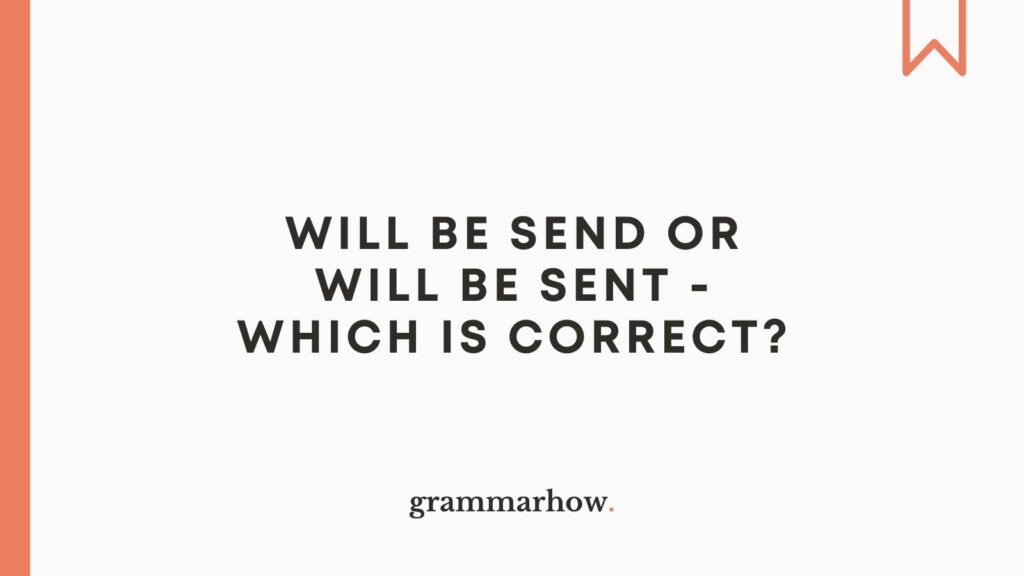Using the appropriate verb tense is important in writing. You might not know which is correct between “will be send” and “will be sent,” so it’s worth looking into them both to learn more.
Luckily, this article is here to help. We’ve explained the differences to help you understand what to use.
Will Be Send or Will Be Sent – Which Is Correct?
“Will be sent” is correct. It is the simple future tense, letting someone know to expect someone else to send an item. For example, “the document will be sent to you.” “Will be send” is incorrect because “send” is the simple past tense and the incorrect form.
Here are some examples to show you both of them:
- Correct: The itinerary will be sent out at a later time.
- Incorrect: The file will be send to you. Thank you for your patience.
So, you should only use “sent” as the past participle of the infinitive form “to send.”
Keep reading to learn more about these verb tenses and how to remember the appropriate one.
Will Be Sent
When writing in the future form, you need to use a past participle along with a phrase like “will be.” That’s where “sent” comes in. It is the correct form to use.
“Sent” is the past participle of “to send.” You can include it after “will be” to create the simple future tense.
It lets someone know you will “send” something in the future but do not plan on doing it at present.
For instance:
- Don’t worry; it will be sent through email as soon as we know more about the situation.
- The file will be sent later. We cannot give the information away at the moment.
The same rules apply in negative situations too (i.e., when using “will not be sent”). You should only ever use “sent” when “will be” is present.
For example:
- Correct: The item will not be sent to you. I’m afraid we do not have the stock.
- Incorrect: It will not be send your way. We hope you can forgive us.
Will Be Send
Using “send” is incorrect in the simple future tense. It is the simple past tense of “to send,” meaning it has no place in any future scenarios you may create in your writing.
For instance:
- Correct: This will be sent later. We apologize for any inconvenience.
- Incorrect: It will be send to you. It will be send through email, so keep an eye on your inbox.
There is never a time when “will be send” is the appropriate way to write the phrase. It doesn’t matter what context you include it in.
To remind you, here is one more pair of examples:
- Correct: You will be sent more information.
- Incorrect: The plan will be send out when we know more.
Conclusion
Only “will be sent” is correct. You should use it because “sent” is the past participle of “to send,” which is appropriate to include in the simple future tense.
You should never write “will be send.” It is grammatically incorrect as it uses the wrong tense of “send.”

